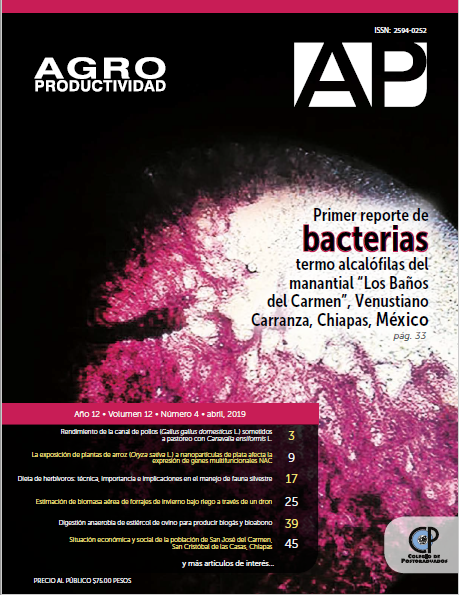FIELD SCHOOLS AND PRODUCTION OF ORGANIC VEGETABLES IN A TZOTZIL COMMUNITY OF LOS ALTOS DE CHIAPAS, MEXICO
Main Article Content
Keywords
Poverty, technology transfer, Altos de Chiapas.
Abstract
Objective: Evaluate the impact of the transfer of horticultural technology through the Field Schools (ECA) to a group of Tzotziles farmers in Los Altos de Chiapas, Mexico.Design/methodology/approximation: The study was developed with seven families from San Jose del Carmen, San Cristobal de Las Casas, Chiapas. An initial diagnosis was made and during the period 2017-2018 the production of vegetables with the biointensive method was promoted. To evaluate the results, the following variables were determined: cultivated area, yield, diversity of species, stability and destination of production.Results: With the increase of knowledge in the production of crops by the biointensive method, the cultivated area increased by 91%, the production of vegetables in biointensive beds was 10.4 kg m-2. An increase of 86% of the cultivated species was achieved and there was food availability for eight months. 94% of the production was destined for self-consumption.Limitations of the study/implications: The results of this study are considered acceptable, however, it is necessary to continue with the technical support and determine the degree of adoption of technology.
Findings/conclusions: The implementation of the Field Schools model increased the level of knowledge about the method of biointensive cultivation, improving the production and availability of vegetables in San Jose del Carmen, San Cristobal de Las Casas, Chiapas.

